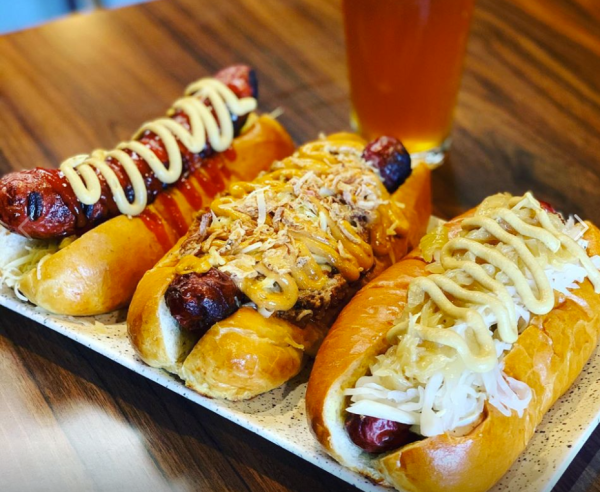Social historians will be investigating and interpreting the pandemic and the phenomenon of self-isolation for years to come. Lock-down has altered our behaviour in so many ways. It has lead to a phenomenon dubbed ‘iso-baking’ (and a scarcity of flour), but also to a huge increase in take-away meals and snacks.

When our Blue Mountains eateries could no longer provide in-house dining, many turned to producing a take-away menu. It was pro-active and inventive, and no doubt has been saving struggling businesses from collapse. They were already in deep trouble due to the bushfires and a dramatic reduction in tourist numbers. However, I couldn’t help noticing that the photos used to promote the service were invariably of food such as over-sized hamburgers, sometimes called ‘dirty burgers’, accompanied by chips. So tempting to bored, anxious people in lock-down. Yes, we have freedom of choice, but these are extraordinary times when we are all so vulnerable to advertising.
Even some of our high quality eateries have been pumping out ‘heart attack’ fare. Fair go, if I really wanted a snag in a roll I could get one for a fraction of the price at Bunnings!

Not surprisingly there was some blow-back when I mentioned this on our community FB group. Some considered I had no right to ‘interfere’ in what people choose to eat, but of course that was not my object. I was simply commenting on the promotion of high fat food when in most cases there were healthier items on those take-away menus.
KIWIS RUSH FOR JUNK FOOD POST LOCK-DOWN
Across the Tasman, lock-down rules were even stricter, with no fast food available for several weeks. It was amazing, and also upsetting, to see what happened the moment restrictions were relaxed on May 1. Social distancing was suddenly ignored as customers crowded about waiting for their orders of Maccas and KFC. Staff began to worry about their own safely.
On May 2nd, drivers began queuing at drive-through McDonalds outlets as early as 4.00am.

On that single day, 300,000 burgers were sold at the country’s 160 outlets. Stores were forced to close temporarily (including all three branches in Rotorua), due to stocks being exhausted. Lettuce was the first ingredient to run out, but the punters didn’t mind that!
This post lock-down scene at the coastal town of New Plymouth became all too common.

The pandemic has highlighted just how addicted we are to high salt and fat ‘junk food.’ We know that Covid19 is more serious for those with diabetes, heart problems and high blood pressure, so surely it’s time to reflect on the quality of fast-food we are offered? By the way, I love this sort of food as much as anybody, so I’m not being judgmental. Giant hamburgers may not tempt me, but oh those fries and thick-shakes!
By the way, I didn’t think I would ever applaud Boris Johnson for anything, but his recent initiative re lack of exercise and the addiction to junk food sounds eminently sensible.
For more on what happened in New Zealand. CLICK HERE
